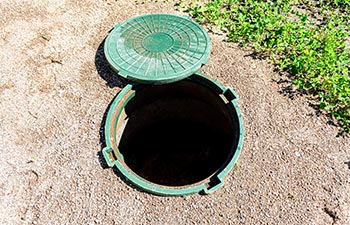
If you’ve ever shopped the grocery aisle for laundry detergent, you know the countless options there is to choose from. You may be lured by a refreshing scent, the one on sale or the latest brand to hit the market. However, if you’ve got a septic tank at home, you need to first consider what’s best for your plumbing environment.
Prices and scents may vary throughout all types of laundry detergent, but you’ll notice that there are three basic forms of detergent to consider: powder, liquid and pods. While you may have a personal preference of which one you like best, do you know which type your septic tank prefers?
POWDER
Some may view powder as the “old school” version of laundry detergent. These are the least expensive to purchase and they are often packaged in a more environmentally friendly cardboard box. However, powdered detergent can also form clogs in a septic system since they don’t always dissolve well in certain water conditions. This can compromise the speed of processing within your septic tank and even lead to a blockage. This is more common in powder detergents that contain a lot of fillers, especially when the filler is montmorillonite clay – one that is used to seal soils!
PODS
The newest trend in laundry detergent is pods, a prepackaged liquid detergent that is conveniently wrapped up in a small gel-pack for easy use. These carry the most expensive price tag of the three options and also the most serious health risks. Recent news has revealed the danger of letting children consume pods. As far as your septic tank, most pods are considered safe.
LIQUID
Liquid detergents are an excellent choice for cleaning your clothes and preserving your septic tank. They can be used in most water conditions as well, with the ability to fight oils, grease and food stains. You’ll pay a bit more than powder but not as much as pods.
Other Laundry Tips to Remember
The type of detergent you use is not the only factor you’ll need to consider when washing your clothes in a septic system home. To protect your tank, it is important that you don’t overload your system by doing more than one or two loads a day. In addition, consider buying an energy-efficient or top loader model. These use about 15 gallons of water for each load compared to the 30 to 40 gallons from a standard washing machine.
For more tips on keeping your washing routine “septic safe,” please call Metro Septic and Plumbing. We serve the greater Atlanta area with excellence in all things septic!

